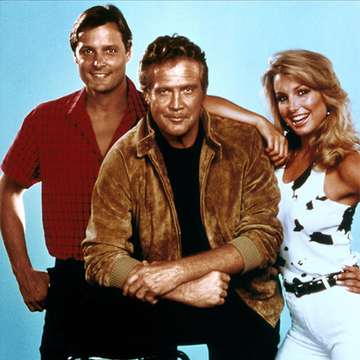Who are the mascots?
These absolute legends.
Where’s it being held?
In South Korea – specifically the mountainous region of Pyeongchang and the coastal Gangneung. The last two Winter Olympics drew criticism for being too warm, but this month could play host to the coldest competition since 1994.
Pyeongchang is nearly half a mile above sea level, and organisers are worried about spectators gathering in high altitude and -13 degrees Celsius winds to watch the opening ceremony. Six people who attended a concert at the city’s Olympic stadium last month developed hypothermia, as cash-strapped organisers couldn’t afford to install central heating.
Nam Sun-woo, a local fishmonger, told the Associated Press: “Not many outsiders understand how cold it gets here. It’s not like where they’re from. This kind of cold is completely different.”
Will South Korea’s noisy neighbours be there?
Yes! Marching under a unified flag with South Korea for the first time since 2006's Asian Games, and playing on the same team for the first time since a 1991 table tennis tournament.
North and South Korea confirmed that they would field a joint women’s ice hockey team (who lost their first practice match against Sweden on Sunday). Kim Jong-un is sending his sister across the DMZ to watch the games, following cooled rhetoric from the North Korean leader.
That’s not to say relations are being repaired. South Korea installed huge underground evacuation centres under their Olympic venues, which have been built just 50 miles from the border.
What sports will be played?
The Biathlon (a combination of skiing and rifle shooting, which sounds more incredible than it is), bobsleigh (watch Cool Runnings), curling (hipster bowls), figure skating, ice hockey, luge (extreme lying down), skeleton (more on that later), speed skating, snowboarding, and loads of variations of skiing disciplines.
What’s the most dangerous sport?
There are plenty of high octane sports on the schedule, but skeleton racing is probably the most wince-worthy.
It’s where you lay down on a flat metal sled and hurtle headfirst down an ice track at speeds of over 80 mph. Athletes begin by frenziedly pushing their sled for around 50 meters before diving on and letting gravity take control. The sled has no steering mechanism, so competitors shift their legs and shoulders to change direction, tucking their face extremely close to the ice. That’s not to mention the G-forces that make your head feel like bowling ball.
Which all might sound a bit overwhelming, but you should definitely give it a watch (even if it is between your fingers). Why? Well…
What’s Great Britain’s best chance of gold?
GB athlete Lizzy Yarnold won a gold medal in the skeleton at the 2014 Sochi Winter Olympics, and the 29-year-old is set to defend her top spot at this month’s competition. We’ve dominated the field since 2010, and it’s bound to be our best chance yet again.
That’s not to say it’s been a steady path since Sochi. Yarnold took a year-long break due to burnout, and has struggled to find form. She was even beaten at the World Cup races by fellow GB athlete Laura Deas who will be joining her on the skeleton team.
Team GB equaled their greatest haul of medals in 2014 with four, but they’ll have a harder time of it this time around.
Are Russia banned?
Sort of.
They were disqualified from sending a team as punishment for their state-supported doping scandal at Sochi in which 23 athletes were stripped of their medals, including 8 golds.
But 28 athletes have since had their bans overturned (with 32 more waiting on appeal), and 169 Russians who were deemed clean will compete as an “Olympic Athlete from Russia” at the competition. There’ll be no anthem, flags or stern-faced close-ups of Vladimir Putin, but the Russians will still be there.
Any inspiring stories to get behind?
Three Nigerian-American women – Seun Adigun, Ngozi Onwumere and Akuoma Omeoga – have made history by being the first ever African bobsled team to qualify for the Olympics.
They all started as sprinters, mostly trained in warm weather conditions, and driver Adigun admitted she was terrified the first time she got in a sled. She told AFP: "The only thing that saved my peace of mind was that I used to be a gamer, so initially I just treated it like a video game."
A women’s bobsled team have qualified from Jamaica for the first time, too, replicating the success of their male counterparts at the 1988 Winter Olympics in Calgary, Canada (who famously inspired the film Cool Runnings).
And make sure to look out for Pita Taufatofua, a former taekwondo fighter who competed in the 2016 Olympics and taught himself a new sport for this month’s games. The 34-year-old will be represented Tonga as a cross-country skier.















